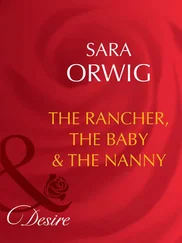Aaman’s eyes are upon her. She feels vulnerable as she speaks of her father’s death and wonders if she can now act tough. But as she utters the words “my dad was dead,” the cat stands up on her lap and rubs its nose against her chin. It is the touch of kindness that undoes the last binding. She makes no noise but rocks backwards and forwards, her shoulders raising and lowering in an impulse action to her silent sobs as she slowly curls into a ball on her chair squeezing the cat onto the floor.
Aaman puts a hand toward her. Saabira cried in his arms for so long, cried until she was asleep and awoke to cry some more. He felt responsible for her pain. He had promised to make her happy, but by creating within her a lifeless child, he had created her greatest pain. Aaman feels tears in his eyes and puts his arm across Juliet’s back, smoothing and stroking. He leans in until his hair touches hers and he makes a gentle sucking, tutting noise, as a mother to a child.
Juliet rocks and noiselessly cries, arms across her raised knees, oblivious of Aaman or his stroking hand, but falling into the rhythm of his calming sounds. The cat jumps onto the back of the seat where Aaman is sitting. He reaches his paws up Aaman’s back and stretches. Receiving no attention, he curls up behind him to sleep. All three of them take all the time they need.
Juliet feels herself calming. She has avoided talking for as many years as lay between her and her loss. She had mentioned it in heartless one-line statements to Michelle here and there, almost as if Michelle were the problem, but she had not visited the emotions. She is surprised that she is still alive in this moment, that she has survived meeting with these feelings, that she has not been engulfed and eaten alive by the enormity of the pain. She half straightens and feels a weight has been removed. She is surprised and straightens some more.
Aaman takes his hand away and sits back, disturbing the cat who feels he has had enough abuse and jumps off to go and sit on the sofa.
“Are you OK?” His voice a whisper that offers the option not to reply.
“Yes, I think so. That was scary.” She stands slowly and makes her way to the bathroom for tissues.
She splashes her face with water. When she returns, there is no colour in her cheeks, but her eyes are alert. Juliet feels she has gained some strength from the morning. She feels brave but fragile.
“Are you OK?” she asks Aaman, who has tears in his eyes.
“Yes, yes. It is sad. Loss. The things we do and don’t do. Life makes so many choices for us.”
A tear balances on the rim of one of his eyes, his brown irises shimmering under a wash of saline. Juliet is not sure if it is for her or for himself. Or maybe it is for someone else. He gazes across the sitting room and out the front door. Juliet feels the need for some air.
“Shall we sit outside?” She picks up her coffee and the coffee pot and moves towards the light, the promise of warm rays on her face. Aaman follows. The village is still alive with sound. The clarinet music has stopped, the bouzouki has won, but there are many other sources of music scattered around the houses of the village, blending with calls and cheers and shouts. Someone is firing a gun to celebrate. No dogs are barking. No doubt they have all been fed scraps from the roast and lie full length under tables or in olive tree shade.
Juliet puts down the china and briefly re-enters to emerge with two awkwardly large folding chairs. When one hits the door frame, Aaman turns and hurries to help.
“They are a bit more comfortable, I think.” They each unfold a chair and sit. Aaman’s eyes are dry but there is a childlike limpness to his muscles. Juliet holds her head high. Her head feels clear. There is lightness to her movements.
“So we both lost someone at a young age.” Juliet offers him the opening.
Aaman tenses at the invitation. He looks over the wall at the hill beyond the village rooftops. He takes himself far away. Juliet sits for a moment, but feels uncomfortable in this silence. She opens her mouth to speak but changes her mind. She looks for the cat. He is not there. She pours more coffee into her mug and holds it between both hands, sipping it as if it were a cold day.
“Giaan.”
Juliet starts and a drop of coffee drips onto her jeans. She rubs it away before turning to give Aaman her attention.
“That was his name. Giaan.” He leans forward and traces the letters with his finger on the table top in English, slowly, with unpractised movements.
“It means having knowledge of God or heaven. I am not sure how to say in English. It was the first thing I learnt to write in English.” He picks at the edge of the table.
“Then I learnt to spell my name A-A-M-A-N. With two ‘A’s like Giaan.” He writes this with his finger on the table top. The movement becomes more familiar with each stroke.
“Not A-M-A-N, which is the proper way.” He licks his finger and writes again, turning his head this way and that to make the shapes, faint traces of his letters remain on the varnished wood. He returns to running his nail on the table edge.
“How much older than you was he?”
“He was fourteen years old when he died.”
Juliet puts her hand to her mouth. She had imagined him to be older.
“When we were little, he would take me to the pipe at the end of the village and he would bang on the pipe with a stick and the rats would come running out. Then he would try to hit the rats with the stick. The first rats out always got away, but the smaller rats, the weak rats, were last out and too slow.”
Juliet puts her coffee down to give her full attention.
“I watched my big brother chase rats and load wood and help with the land and even stand up to my father. I felt like one of the little rats, not beaten but always running behind, never quite fast enough.”
Juliet wanted to say something but the words wouldn’t come.
“My mother she praised Giaan. My father spoke to him like he was an adult. My grandparents would hug me when my parents gave Giaan this attention, like I was still a child. They did not understand what it meant to be small.
“So I tried to be like Giaan, but when he died that day, I could no longer pretend to be something I wasn’t. I had done nothing to save him. I ran too slowly. I felt like I was one of the little rats running out of the pipe, only, I suppose, in this case, you could say, the wrong rat died.”
Juliet shook her head, her throat tightened. She is overwhelmed with the need to help Aaman forgive himself.
Juliet recalls a conversation she once had with her tutor at college one rainy afternoon on campus in the student cafe. They were practising past tenses. Juliet, for some reason, used her father’s letters as the subject and, whilst struggling with the language, she said that she felt she let her dad down by not contacting him all the years he sent the letters. Her tutor replied in a very difficult sentence structure that Juliet asked him to repeat several times to understand. She cannot remember the sentence structure in Greek now, but she remembers it basically said that she could only do what she had the knowledge and power to do at the time. It was only a Greek conversation practice, but the sentence has haunted her and over time relieved, to some degree, her feelings of guilt. Maybe not.
“Aaman, I wouldn’t wish it, but if this event happened again today, would you do the same thing?”
“I am sorry.” Aaman pulls himself from a faraway place. He hadn’t been listening.
“Suppose, just pretend, it happened today, the fire happened today, I wouldn’t want it to but just supposing it did with the same room and the same factory and everything. What would you do this time?”
Читать дальше












